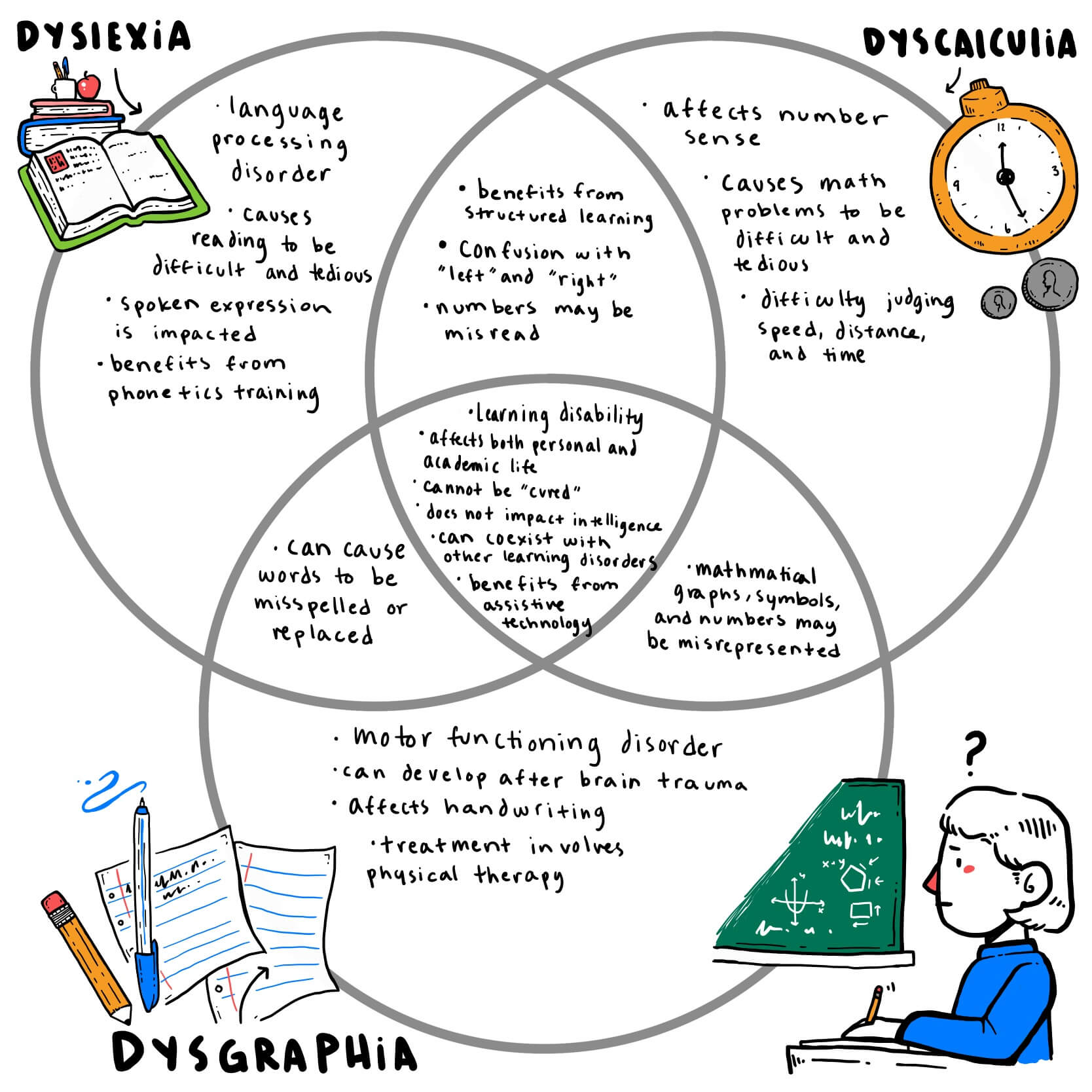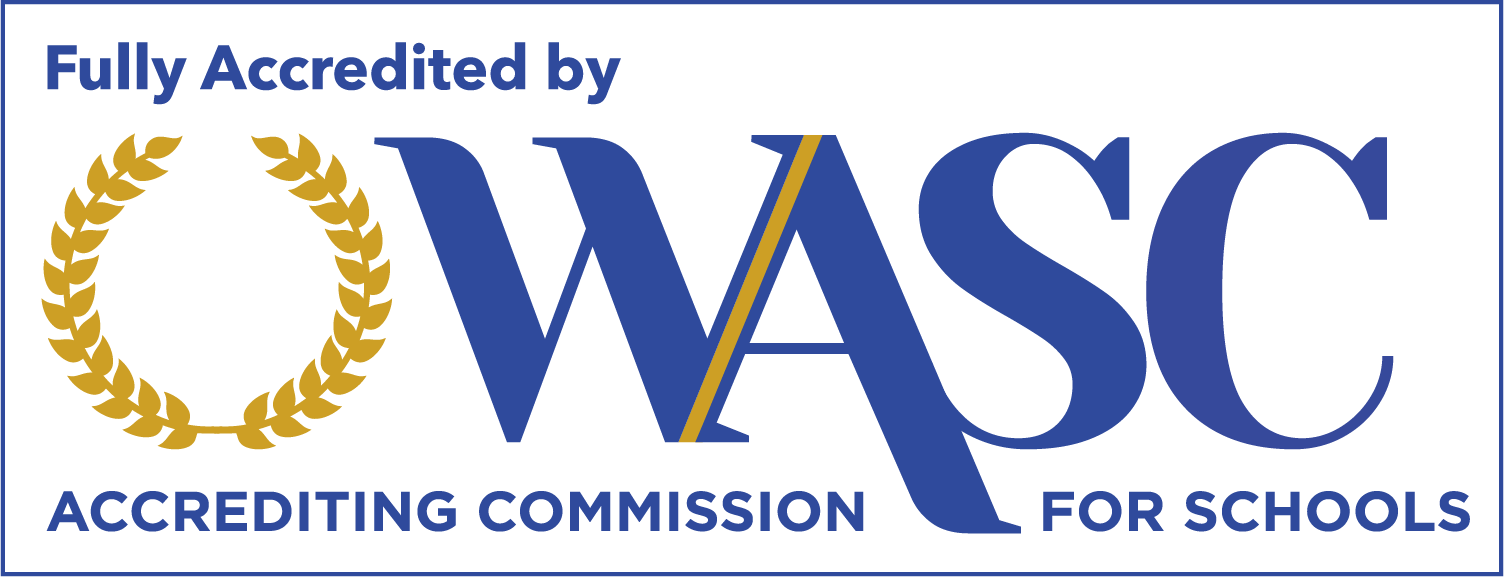Do You Know These 3 Common Learning Disabilities?
Dyslexia, dysgraphia, and dyscalculia are learning disabilities that can cause difficulty in academic settings and everyday life. While they overlap, each condition creates unique challenges and requires specialized intervention.

Dyslexia
Dyslexia affects a person’s ability to spell and read, making reading comprehension, fluency, and writing difficult. Severity differs from person to person, so one person with dyslexia may have reading and writing skills that are more impaired than another.
Dyslexia mainly affects a person’s reading and spelling, so they will have difficulty spelling correctly and sounding out words. They often replace difficult words with simpler or familiar ones and mix up similar letters such as “b” and “p.” Impairment in reading fluency and comprehension makes reading at a steady pace difficult, and remembering information from a passage they just read challenging. Dyslexia is a language processing disorder, so it affects both written and spoken language. This means that someone with dyslexia may have difficulties expressing themselves verbally as well as in written form.
Because much of academic work is based on reading and writing, school can be a substantial challenge for students with dyslexia. Finishing assigned reading, retaining info
rmation, spelling tests, and writing essays are frequent academic assignments that are especially difficult for someone with dyslexia. Outside of school, tasks like remembering a grocery list, reading directions, recognizing one’s right or left, and verbally expressing feelings are some of the many challenges dyslexia makes difficult. However, with consistent and patient instruction, people with dyslexia can overcome their challenges and learn skills to cope with their disability.
Overcoming the challenges of dyslexia is most helped by phonetic-based instruction and training in pattern recognition. Structured literacy programs such as the Barton System and the Wilson Reading System focus on learning that begins with phonetic basics and slowly builds upon previous lessons to ensure complete understanding, which is the best learning method for someone with dyslexia.
Dyscalculia
Dyscalculia affects a person’s ability to understand numbers- including concepts related to time, amounts, sequencing of events, and math-related problems. While dyscalculia is often called “number dyslexia,” it’s essential to differentiate the two- dyslexia is a language processing disorder, while dyscalculia is difficulty with the concepts of numbers. They affect a person’s life in ways unique to each condition and require very different interventions.
Dyscalculia weakens a person’s number sense- the ability to understand the number system and how numbers relate. Any experience related to number sense is affected, which can expand into many aspects of life that don’t explicitly contain numbers.
In school, students are required to learn skills like counting, what numbers are “less” and “more,” different representations of numbers (i.e., “seven” versus “7”), and competence with math equations- all skills that are made much more difficult with dyscalculia. Outside of school, dyscalculia makes the concept of money, time management, scheduling, directions, spatial awareness, and countless other everyday experiences much more challenging. Therefore, having dyscalculia doesn’t just mean someone is “bad at math.” Their disability creates a substantial burden that comes from their brain structure, not a lack of intelligence or effort.
Dyscalculia intervention primarily consists of accommodations and structured learning. For students, private tutoring is a valuable asset that can ensure their academic struggles are addressed and not lost as they would be in a more extensive classroom. The method of learning matters as well. Visual and tactile learning that uses tools such as blocks and brightly colored graphs is beneficial for a student with dyscalculia as it is easier to remember mathematical skills. Calculators are valuable to a person with dyscalculia. Students with dyscalculia should be encouraged to use a calculator whenever possible to show they know how to complete a problem rather than force them to complete tedious calculations. With patience, creative solutions, and the proper accommodations, a person with dyscalculia can adapt to life with their disability.
Dysgraphia is a neurological disorder that causes a person’s writing to be impaired. A person with dysgraphia might have messy handwriting to the point of illegibility or make frequent and repeated errors when writing, both due to misspelled words or entirely different words than intended. It is unknown why children are affected by this disorder. However, some adults develop the disorder after physical trauma to their brain.
Dysgraphia
Dysgraphia is an impairment of motor functions, so it does not affect intelligence. However, it may influence a person’s ability to express themselves in writing. People with dysgraphia struggle with letter and word spacing, writing in a straight line, and holding a writing instrument, among other writing-related skills. This causes their handwriting to be difficult for others to read and often impossible for the dysgraphic person to read back. The pressure a person uses with a writing tool can also be affected, so a person with dysgraphia may frequently make holes through their paper.
Handwriting is an important skill, but luckily, it is much less of a necessity nowadays. The prevalence of computers and phones makes it much more accessible for people with dysgraphia to adapt to their disability and have an undeterred academic and work life. However, dysgraphia often occurs alongside other learning disabilities like dyslexia, ADHD, written expression disorder, and expressive language disorder.
Accommodations for young children who cannot type yet are also available. Pencil grips can help with the difficulty of holding writing tools, paper with raised lines encourages the student to write their sentences straight, and pre-printed material can minimize the amount of writing a student has to do. Occupational and physical therapists may also work with a dysgraphic student to increase muscle coordination.
Learning disabilities can be a significant road bump for many people, but the sooner the condition is identified and treated, the better the outcome. If your child needs a Dyslexia assessment or support for their learning disability, call READ Academy at (916)258-2080 to learn about what we offer.




